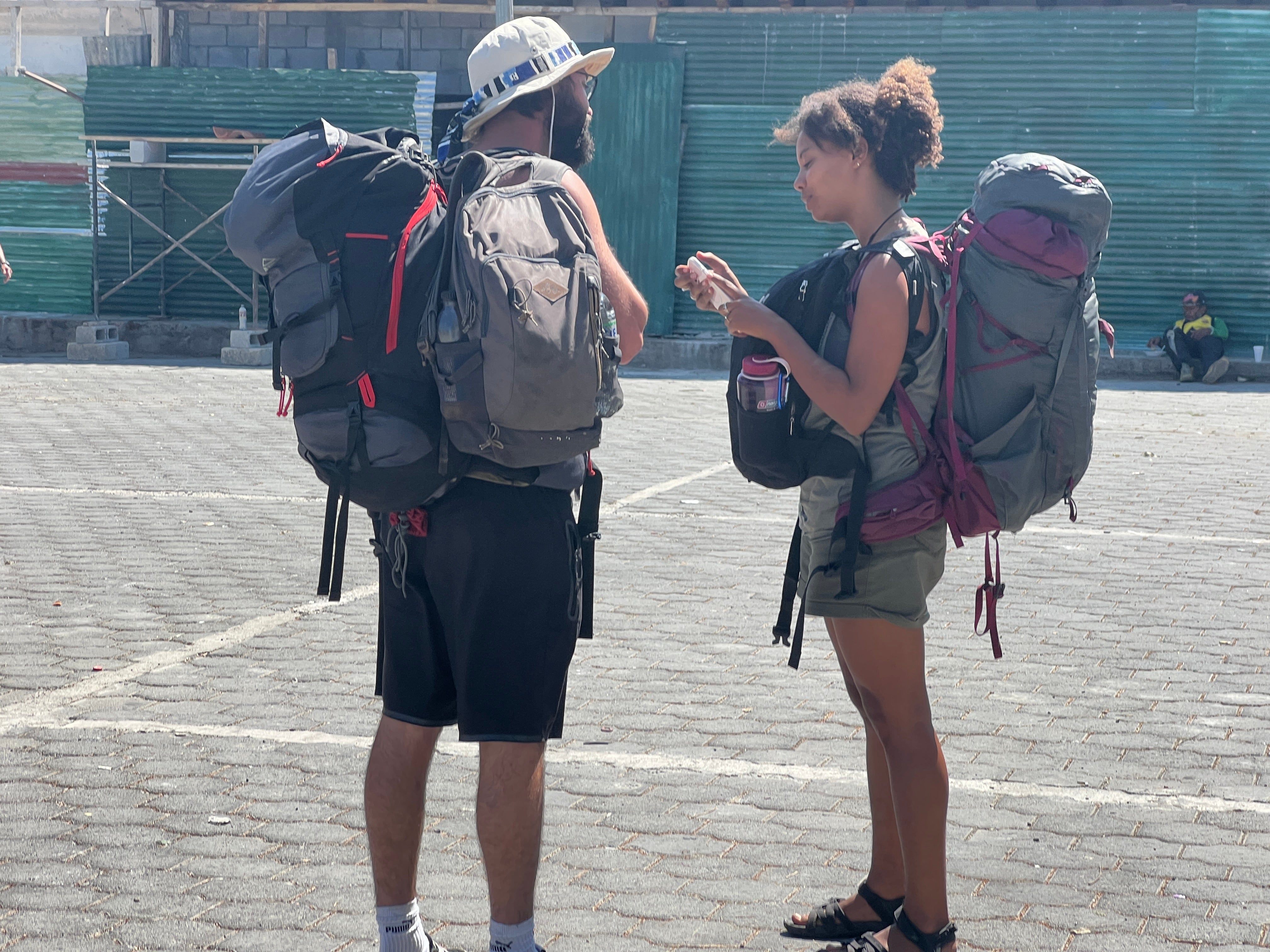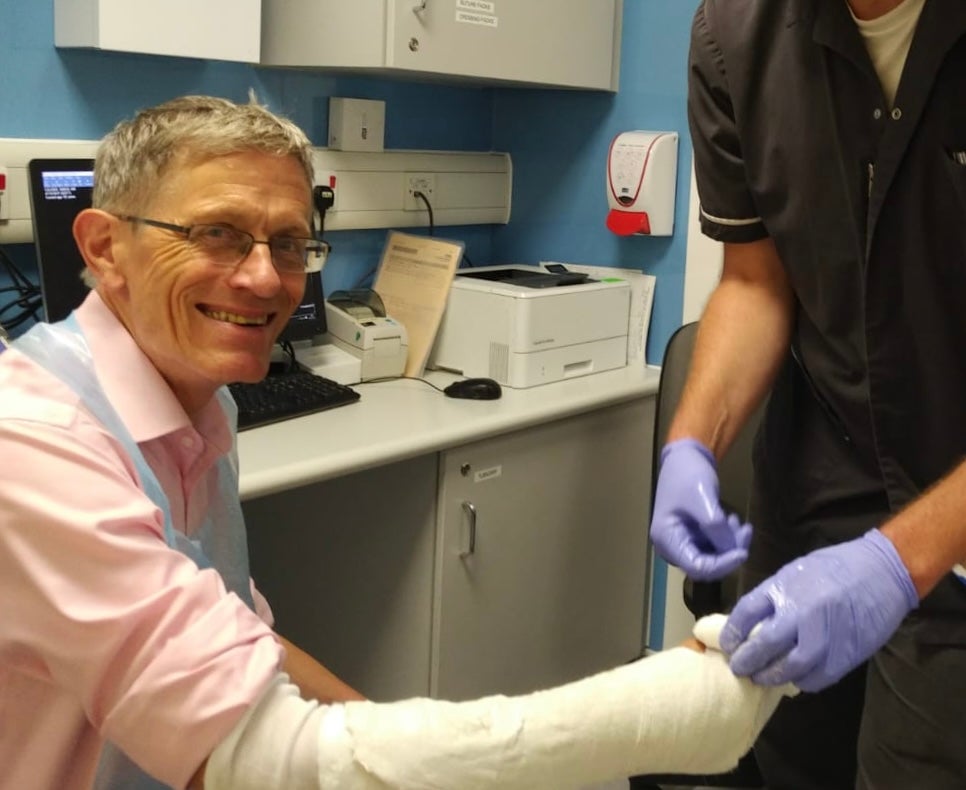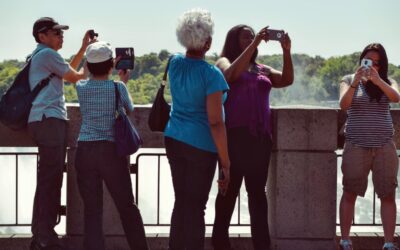“Nobody wants it. But everyone needs it.” Harold Lawrence, founder of the travel insurer Go Walkabout, succinctly summarizes its product.
Each traveler who plans a trip focuses on what can go well, not bad. Who wants to spend money on something you never expect to use? That is travel insurance for you: the best purchase of pain, a necessary evil.
However, for a while, many backpackers could not obtain the coverage they needed. Harold, 83, who has just retired after some amazing 62 years in the insurance industry, made his business make sure they could. He resigned of a stable job and borrowed money against his house to start a company.
“A bet was a bit: renouncing the rights of pensions and everything else. I was married to three children. I remember that family members thought they needed their heads to make my head.”
After a while with a sliding in Bexhill-on-sea in East Sussex, he saw a large and alarming gap in the market: “At that time a great travel insurance was sold by travel agents. There were no tips given. There were many exclusions in the small impression, if people cared to read the policy and understood it. But how many people do?
“When I looked at what the opposition offered, I realized that the real insurance coverage was very poor. There were young people who went around the world, not adequately covered.
“We do our best to make sure that travelers know what they have. When they get their policies, they are also issued a letter, spelling in terms of lay people what they have, and what they should be careful not to do.”
To increase businesses, Go Walkabout founder took a position at Backpcker Travel Shows in London.
“This is when we started to make a unidirectional coverage, because there were none. Everyone approached these shows and said they couldn’t get home to travel home.”
Usually, the Australians and the Neozylalands who had been working in the United Kingdom return without insurance on long and complicated routes, with many risky activities along the way, such as the rafting of brave waters in South Africa or walking to great altitude in the Himalayas.
The existing policies were applied only to the people who made trips that began and ended in the United Kingdom, which did not work for backpackers on unidirectional trips. Harold considered this failure in the insurance market as a “misfortune.”
He developed appropriate policies to prevent backpackers (or their parents) were driven to bankruptcy for high medical invoices, and also because he did not believe that health services in developing countries do not expect to assume the burden of treating travelers without insurance.
“There was a certain amount of morality involved in it. People need to be covered.”

The company specializes in policies that go beyond the conventional offer, such as long -lasting coverage for backpackers. Planning a year and a half on the road? Go Walkabout can please anyone until 74, and offers shorter policies for travelers under 100 years. That will be useful for Harold, which has more time to, well, go for walking.
“I thought that after 62 years it could be a good idea to pass the cane,” he says.
Given the clashes that the travel industry has suffered so far in the century, having a cane to transmit at all is an achievement.
The terrorist attacks of September 11 caused a strong fall in the trip. The 2008 financial accident worsened. Covid was potentially fatal for any insurer who depended on the people traveling abroad: at the beginning of 2021, the United Kingdom government banned all the holidays abroad for 19 weeks, and the ministers made a quarantine lottery go abroad with a chaotic system of “traffic light.”
“The closest thing we view was during the Covid period,” says Harold. “I had built a reasonable business at that time and had enough reservations to continue for 12 months. But it was very close.”
Covid agreed with Brexit: a “double blow” for Go Walkabout. Travel insurers do not assume potentially large medical emergencies. They negotiate coverage with subscribers, which evaluate the risks propagated among thousands of insured.
At that time, Walkabout was working with German subscribers, an agreement that could not endure with the United Kingdom outside the European Union.
“So there we were, a pub without beer,” Harold recalls.
Many British subscribers, covered by Covid losses, did not want more travel issues. But Harold’s reputation assured an agreement that assured the survival.

The company is staying in the family: its son -in -law, Mark Brunger, has assumed the position of managing director, bringing a new thought.
“More people find us online now, but no, thanks to me, I can assure you,” says Harold.
“People do business with people. I believe in the outdated way of selling insurance: they must facilitate people to speak to them.
“If they are getting a good deal and like the person with whom it is, they will get their part.”
Travel insurance is more competitive than ever. Fortunately for travelers who plan off -ordinary trips, many insurers now offer excellent policies. But for the faithful customers of Harold Go Walkabout, Bexhill-on-Sea remains an essential entrance door for adventure.









